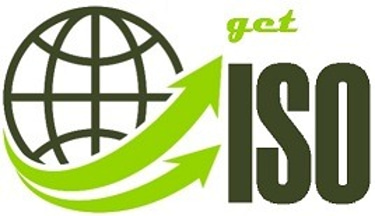The Importance of ESG in the Supply Chain
ESG (Environmental, Social, and Governance) frameworks provide structured guidelines for companies to measure and report their impact on the environment, society, and corporate governance. These frameworks have become increasingly important for businesses aiming to demonstrate their commitment to sustainability and responsible practices.
Key aspects of ESG frameworks include:
Environmental factors: Focus on a company's impact on the natural world, including carbon emissions, resource usage, and waste management.
Social factors: Address relationships with employees, suppliers, customers, and communities, covering labor practices, human rights, and diversity initiatives.
Governance factors: Relate to leadership, executive compensation, audits, internal controls, and shareholder rights.
ESG frameworks serve multiple purposes:
Guiding principles: They provide a blueprint for organizations to navigate ESG aspects consistently.
Communication tool: Companies use these frameworks to report their ESG progress to stakeholders, particularly investors.
Standardization: They ensure coherence and comparability in ESG reporting across organizations.
Performance measurement: Frameworks offer metrics and indicators for measuring ESG performance.
Some commonly used ESG reporting frameworks include:
Global Reporting Initiative (GRI)
Sustainability Accounting Standards Board (SASB)
Task Force on Climate-related Financial Disclosures (TCFD)
Carbon Disclosure Project (CDP)
Climate Disclosure Standards Board (CDSB)
When choosing an ESG framework, companies should consider factors such as industry relevance, stakeholder expectations, and regulatory requirements.
The adoption of ESG frameworks is driven by increasing investor interest, customer demand for sustainable practices, and emerging regulatory mandates. As ESG reporting continues to evolve, it's becoming an essential tool for companies to demonstrate their commitment to sustainable growth and responsible business practices.


Understanding ESG
Environmental, Social, and Governance (ESG) frameworks are foundational components for contemporary businesses striving to achieve sustainability and responsibility in their operations. These frameworks provide a structured approach to measuring and reporting a company's impact on the environment, their societal contributions, and the robustness of their governance structures. The importance of ESG frameworks cannot be overstated, as they offer a comprehensive set of criteria that stakeholders—including investors, customers, and regulatory bodies—use to evaluate corporate performance.
The environmental aspect of ESG focuses on how companies interact with the natural world. This includes their efforts to reduce carbon footprints, manage waste and resource use efficiently, and implement sustainable practices. By adhering to these criteria, companies can mitigate environmental risks and contribute to global sustainability goals.
The social component addresses a company's relationships with its employees, suppliers, customers, and the communities where it operates. This includes labor practices, human rights, diversity and inclusion initiatives, and community engagement. Companies that prioritize social criteria tend to foster better workplace cultures, enhance brand reputation, and build stronger community ties.
Governance, the third pillar of ESG, pertains to a company’s leadership, executive pay, audits, internal controls, and shareholder rights. Effective governance ensures that a company operates transparently and ethically, with accountability mechanisms in place to prevent misconduct. Strong governance practices are crucial for maintaining investor confidence and regulatory compliance.
ESG frameworks have gained significant traction among stakeholders due to their holistic approach to assessing a company's long-term viability and ethical standing. Investors increasingly use ESG criteria to make informed decisions, recognizing that companies with robust ESG practices are better positioned to manage risks and capitalize on opportunities. Customers also prefer businesses that demonstrate a commitment to ESG principles, as they align with growing consumer demand for ethical and sustainable products. Regulatory bodies are beginning to mandate ESG disclosures, underscoring the importance of these frameworks in modern business landscapes.
The Role of ESG in Supply Chain Management
The integration of ESG (Environmental, Social, and Governance) principles into supply chain management is increasingly crucial for companies aiming to meet regulatory requirements and rising consumer expectations. ESG criteria are applied throughout supply chains, influencing everything from sourcing raw materials to the final delivery of products. In this context, the environmental impact of supply chains is a significant concern. Companies are now more focused on minimizing their carbon footprint and optimizing resource usage. This involves initiatives such as reducing emissions, improving energy efficiency, and adopting sustainable sourcing practices.
Social factors also play a pivotal role in ESG-compliant supply chains. Labor practices, for example, are under intense scrutiny. Companies must ensure fair wages, safe working conditions, and respect for workers' rights. Moreover, the broader community impact of supply chain operations is gaining importance. Businesses are encouraged to engage in community development and ensure that their operations do not negatively affect local populations.
Governance is another critical dimension of ESG in supply chain management. Ethical sourcing and transparency are paramount. Companies need to establish robust governance frameworks to ensure that their suppliers adhere to ethical standards and that there is transparency throughout the supply chain. This includes conducting regular audits, fostering supplier relationships based on trust and compliance, and using technology to enhance traceability.
Several companies have successfully integrated ESG principles into their supply chains, reaping substantial benefits. For instance, Patagonia has long been a leader in sustainable practices, focusing on ethical sourcing and transparency. The company’s commitment to ESG has not only bolstered its brand reputation but also attracted a loyal customer base. Another example is Unilever, which has implemented stringent ESG criteria across its supply chain, resulting in improved efficiency, reduced costs, and a stronger market position.
Incorporating ESG principles into supply chain management is no longer optional but a necessity. It allows companies to build resilient, ethical, and sustainable supply chains that meet modern regulatory standards and consumer expectations. As more businesses recognize the importance of ESG, we can anticipate a broader positive impact on both the environment and society.
Challenges and Future Trends in ESG and Supply Chains
The integration of Environmental, Social, and Governance (ESG) principles into supply chains, despite its numerous advantages, is fraught with challenges. One of the primary obstacles is the complexity involved in tracking ESG metrics across diverse and global supply chains. The multiplicity of suppliers, varying standards across regions, and the sheer volume of data make it difficult for companies to maintain transparency and consistency in their ESG reporting. This complexity is compounded by the need for accurate and real-time data, which is often hard to obtain.
Another significant challenge is the cost associated with implementing sustainable practices. Transitioning to eco-friendly materials, reducing carbon footprints, and ensuring fair labor practices require substantial financial investments. Small and medium-sized enterprises (SMEs), in particular, may find these costs prohibitive, thus hindering their ability to fully embrace ESG principles. Moreover, the return on investment for such practices may not be immediately apparent, making it harder to justify the expenses to stakeholders focused on short-term gains.
Technological innovation is crucial for overcoming these challenges. Emerging technologies like blockchain are showing promise in enhancing traceability and transparency within supply chains. Blockchain's immutable ledger allows for secure and verifiable tracking of goods from origin to end-user, thereby ensuring that ESG standards are met at every stage. This technology can also help reduce the administrative burden associated with compliance and reporting.
Looking ahead, several trends are poised to shape the future of ESG in supply chains. Increasing regulatory pressures will compel businesses to adopt more stringent ESG practices. Governments and international bodies are introducing laws and guidelines that mandate higher levels of environmental and social responsibility. Companies that fail to comply with these regulations risk facing significant penalties and reputational damage.
The growing importance of stakeholder engagement is another trend that cannot be overlooked. Investors, consumers, and employees are becoming more vocal about their expectations for corporate responsibility. Businesses that actively engage with their stakeholders and demonstrate genuine commitment to ESG principles are likely to enjoy enhanced brand loyalty and investor confidence.
In conclusion, while the path to fully integrated ESG in supply chains is challenging, it is also ripe with opportunities. By leveraging technological advancements, staying ahead of regulatory changes, and fostering robust stakeholder relationships, businesses can not only navigate these challenges but also position themselves as leaders in sustainable and ethical supply chain management.


